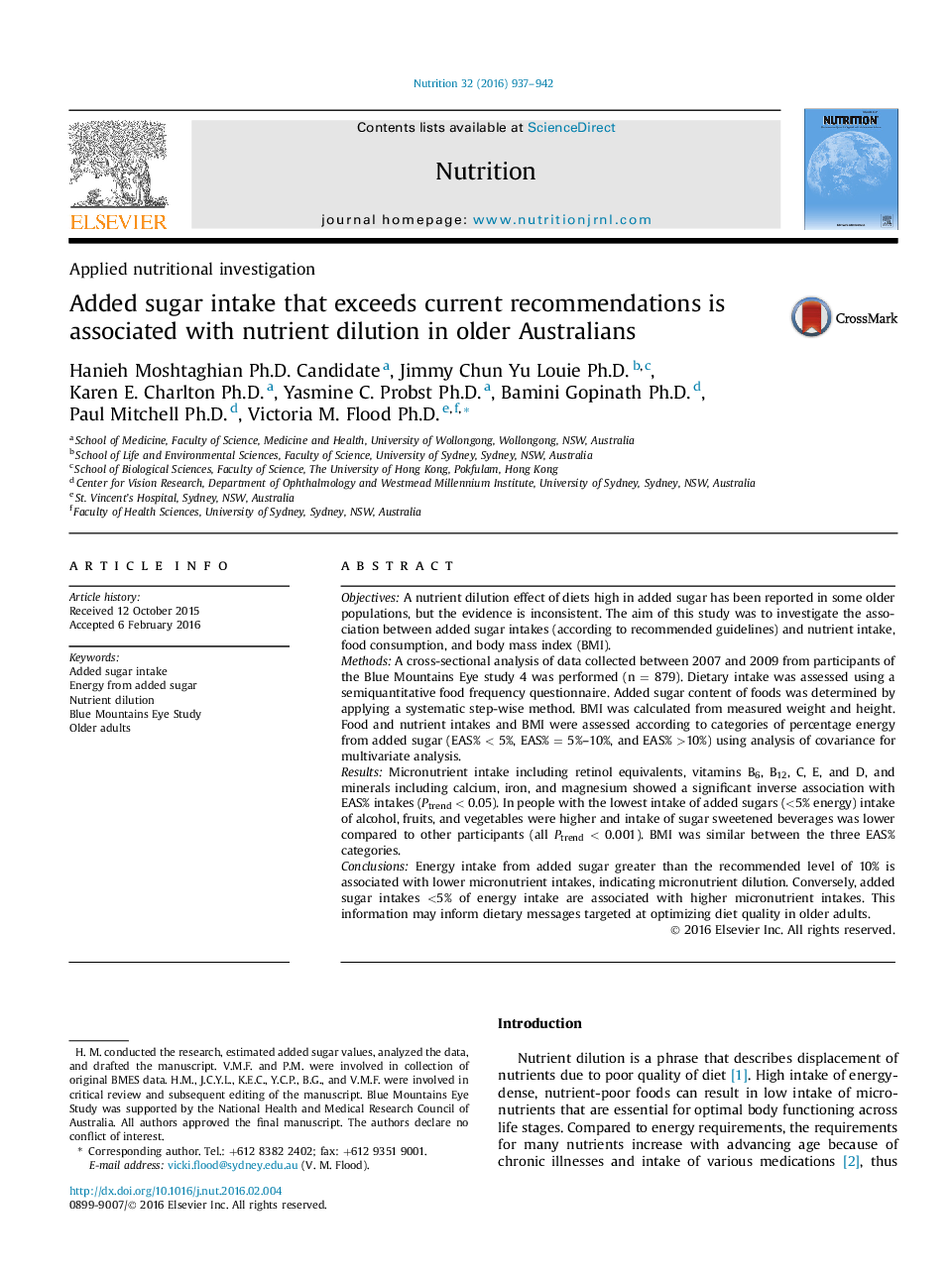| کد مقاله | کد نشریه | سال انتشار | مقاله انگلیسی | نسخه تمام متن |
|---|---|---|---|---|
| 3276095 | 1208528 | 2016 | 6 صفحه PDF | دانلود رایگان |
• We assessed the association between added sugar, food, and nutrient intake in older Australians.
• High added sugar consumers had higher energy intake than low added sugar consumers.
• Consumers with higher added sugar intake had lower protein, vitamin C, vitamin E, and zinc intake.
• Consumers with low added sugar intake had higher amounts of alcohol, fruit, vegetable, and fish.
ObjectivesA nutrient dilution effect of diets high in added sugar has been reported in some older populations, but the evidence is inconsistent. The aim of this study was to investigate the association between added sugar intakes (according to recommended guidelines) and nutrient intake, food consumption, and body mass index (BMI).MethodsA cross-sectional analysis of data collected between 2007 and 2009 from participants of the Blue Mountains Eye study 4 was performed (n = 879). Dietary intake was assessed using a semiquantitative food frequency questionnaire. Added sugar content of foods was determined by applying a systematic step-wise method. BMI was calculated from measured weight and height. Food and nutrient intakes and BMI were assessed according to categories of percentage energy from added sugar (EAS% < 5%, EAS% = 5%–10%, and EAS% >10%) using analysis of covariance for multivariate analysis.ResultsMicronutrient intake including retinol equivalents, vitamins B6, B12, C, E, and D, and minerals including calcium, iron, and magnesium showed a significant inverse association with EAS% intakes (Ptrend < 0.05). In people with the lowest intake of added sugars (<5% energy) intake of alcohol, fruits, and vegetables were higher and intake of sugar sweetened beverages was lower compared to other participants (all Ptrend < 0.001). BMI was similar between the three EAS% categories.ConclusionsEnergy intake from added sugar greater than the recommended level of 10% is associated with lower micronutrient intakes, indicating micronutrient dilution. Conversely, added sugar intakes <5% of energy intake are associated with higher micronutrient intakes. This information may inform dietary messages targeted at optimizing diet quality in older adults.
Journal: Nutrition - Volume 32, Issue 9, September 2016, Pages 937–942
